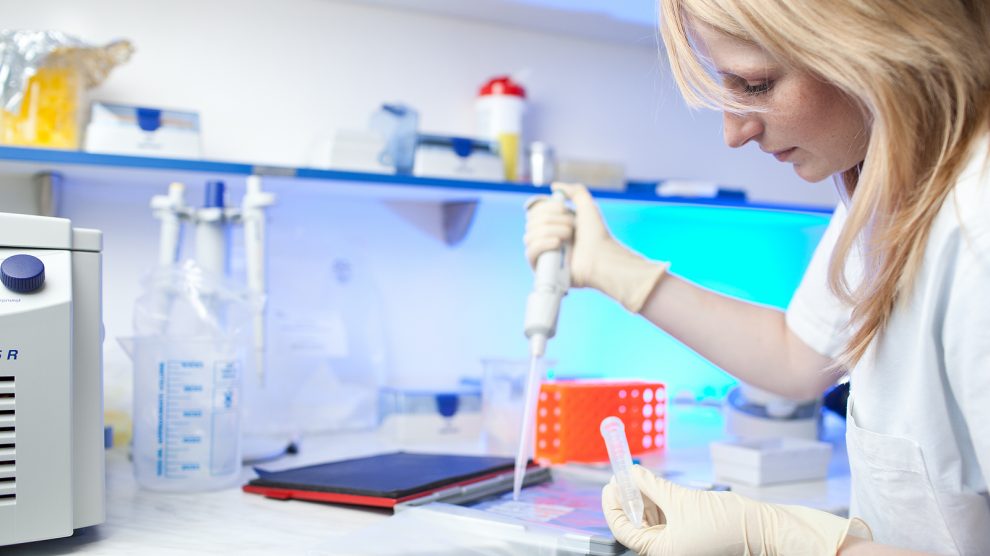Education is the most important factor for the fast adoption of healthcare innovations. In Central, Eastern and Southern Europe, EIT Health and GE Healthcare are making it happen.
Healthcare generates an enormous volume of data annually, and that volume is increasing. Countless AI-driven applications are already available to support the routine of clinical practice. The potential is vast: according to the AI in Healthcare Report by Grand View Research, the global market for AI in healthcare, which was valued at 6.7 billion US dollars in 2020, will grow to 120.2 billion US dollars by 2028.
- Warsaw Health Innovation Hub set make a ‘Polish Medical Valley’ a reality
- Thinking global from the get go: Boosting healthtech in Europe’s emerging regions
- From Romania, EIT Health InnoStars Awards winner Tully is helping children manage their emotions
According to a McKinsey and EIT Health report, Transforming Healthcare With AI, the technology has the potential to enrich and refocus the work of healthcare professionals towards what they got into the profession for – direct patient care.
The technology will facilitate the automation of mundane tasks for healthcare professionals who currently spend up to 70 per cent of their time on administration. A survey conducted by MIT Technology Review Insights in association with GE Healthcare, The AI Effect, also points out that healthcare organisations must allow for fundamental shifts in how patients are cared for, and healthcare workers must leverage increasingly comprehensive pools of AI-mediated medical data to deliver better care.
Yet the explosion of data, in addition to the shortage of healthcare professionals, increasing costs, access and quality concerns are raising significant major issues in the sector.
“AI has huge potential to transform how healthcare is delivered,” says Balázs Zoltán Fürjes of EIT Health InnoStars, one of the seven geographical areas of EIT Health, a network of best-in-class health innovators supported by the European Institute of Innovation and Technology (EIT).
“However, there is a tremendous gap in healthcare experts’ practical knowledge and education on operating and implementing innovative technologies. At EIT Health Innostars we support the transformation in healthcare in Central, Eastern and Southern Europe, by accelerating innovation and education of digitised healthcare solutions that can be quickly deployed in a flexible way, empowering healthcare professionals to use new generation tools.”
Education is indicated as the most important factor for the fast adoption of healthcare innovations. To address the highlighted issues and narrow the skills gap in medical IT education and multidisciplinary collaboration, EIT Health and GE Healthcare – in collaboration with KTH Institute, LEITAT Technology Centre and the University of Maastricht – tailored an extensive educational and practical programme on AI application in the medical field: the HelloAI programmes.
HelloAI Professional
Just recently close to 350 medical experts worldwide, from 37 different countries, completed the HelloAI Professional course consisting of six live sessions, four self-learning modules, and more than 18 hours of valuable content provided by leading figures in the field of AI implementation in healthcare.
“Artificial Intelligence is broadly expected to drive significant benefits across healthcare systems, increasing efficiency while decreasing operational costs to improve patient outcomes,” says Professor Mathias Goyen, chief medical officer at GE Healthcare EMEA.
“With such exponential acceleration on AI in daily clinical work, medical professionals must educate themselves and be prepared for future disruption in the industry. AI can make healthcare data-driven, value-based, and patient-centric. I’m confident that the HelloAI initiative can equip medical professionals with the right skillset to operationalise AI for faster, more accurate patient diagnoses and reduced administrative clinical burdens in the future.”
The idea of the HelloAI initiative was born four years ago in Budapest, Hungary, where GE Healthcare’s most extensive data science and AI experts’ team in Europe is based, working in the fields of medical imaging, workflow management and artificial intelligence deployment in healthcare.
“Thanks to the unique and broad collaboration with academic and clinical partners across Europe and in the US our multidisciplinary teams have wide access to data and clinical expertise enabling our software engineers and data scientist to develop revolutionary healthcare products and services in Hungary to global markets,” adds Attila Ferik, senior director of software engineering at GE Healthcare.
“Our teams, in collaboration with our partners, are committed to share their deep-tech expertise with healthcare professionals and entrepreneurs to drive AI adoption in healthcare.”
Practical applications
The programme highlighted various medical fields where AI can be applied and solve a wide range of challenges with several impactful, practical examples from acceleration and innovation to first-hand experiences of real clinical implementations.
The programme included technical exercises to deep dive into AI and introduced digital platforms that enable innovation, development, storage of data while providing security and data privacy. An important aspect discussed was patient perception: how AI can make healthcare human again by freeing up time for clinicians to interact with their patients on a human level.
“HelloAI Professional is a very-well organised on-line educational course. It has extremely rich and diverse content and truly inspiring speakers from all over the world. The programme is a must for any healthcare professional of today’s digital environment and AI enthusiast involved in health-tech. It provides a concise yet comprehensive overview of all you need to start AI projects or decide what to test and implement,” says Professor Hakki M. Karakas, director of radiological services at the Istanbul Provincial Health Authority, who take part in the programme.
Unlike many news and information platforms, Emerging Europe is free to read, and always will be. There is no paywall here. We are independent, not affiliated with nor representing any political party or business organisation. We want the very best for emerging Europe, nothing more, nothing less. Your support will help us continue to spread the word about this amazing region.
You can contribute here. Thank you.








Add Comment